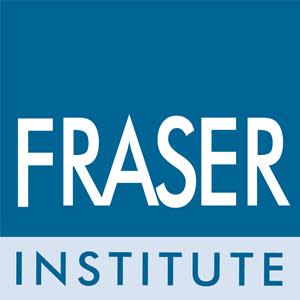Fraser Institute News Release: Reforming the Indian Act to facilitate Indigenous property rights key to increasing First Nations entrepreneurship

VANCOUVER, British Columbia, May 19, 2022 (GLOBE NEWSWIRE) -- The federal government could improve First Nations entrepreneurship, which is key to prosperity, by further removing barriers to property rights within the Indian Act, finds a new study published by the Fraser Institute, an independent, non-partisan Canadian public policy think-tank.
“Indigenous people in Canada face many barriers to entrepreneurship that other Canadians do not, so Ottawa has a responsibility to right this wrong,” said Tom Flanagan, professor emeritus at the University of Calgary, senior fellow at the Fraser Institute and author of The Indian Act: A Barrier to Entrepreneurship.
The study outlines several ways the federal government can promote greater entrepreneurship within First Nations, including:
Expand property rights: Expedite the creation of urban reserves and the ability of Indigenous people to possess land (which they may choose to develop or sell) within and outside reserves. And help small and scattered First Nations to act together in the real estate market.
Natural resources: Study the profitability and efficacy of Indian Oil and Gas (a federal agency that manages oil and gas resources on First Nations land) to determine whether the government should also establish similar organizations for other types of natural resources on First Nations territory.
Increase gaming opportunities: Use federal legislative power (for example, amending the Criminal Code) to encourage the provinces to allow First Nations to establish casinos in lucrative metropolitan markets—something most provincial governments currently prohibit.
“Ottawa has amended the Indian Act many times since its creation in 1876, so more amendments are possible,” Flanagan said.
MEDIA CONTACT:
Tom Flanagan, Senior Fellow
Fraser Institute
To arrange media interviews or for more information, please contact:
Mark Hasiuk, Senior Media Relations Specialist
604-688-0221 ext. 517
mark.hasiuk@fraserinstitute.org
Follow the Fraser Institute on Twitter | Like us on Facebook
The Fraser Institute is an independent Canadian public policy research and educational organization with offices in Vancouver, Calgary, Toronto, and Montreal and ties to a global network of think-tanks in 87 countries. Its mission is to improve the quality of life for Canadians, their families and future generations by studying, measuring and broadly communicating the effects of government policies, entrepreneurship and choice on their well-being. To protect the Institute’s independence, it does not accept grants from governments or contracts for research. Visit www.fraserinstitute.org


 Yahoo Finance
Yahoo Finance 